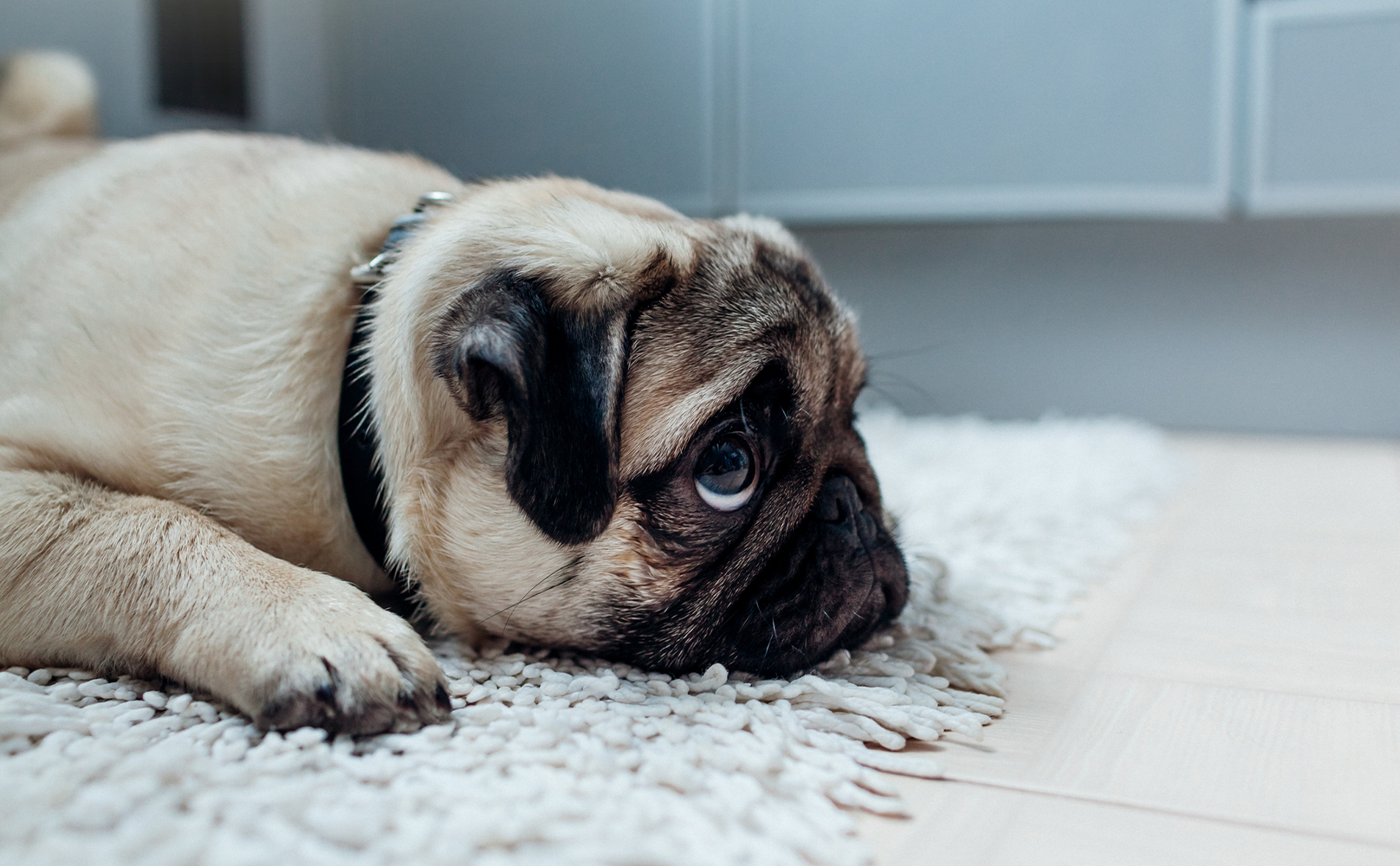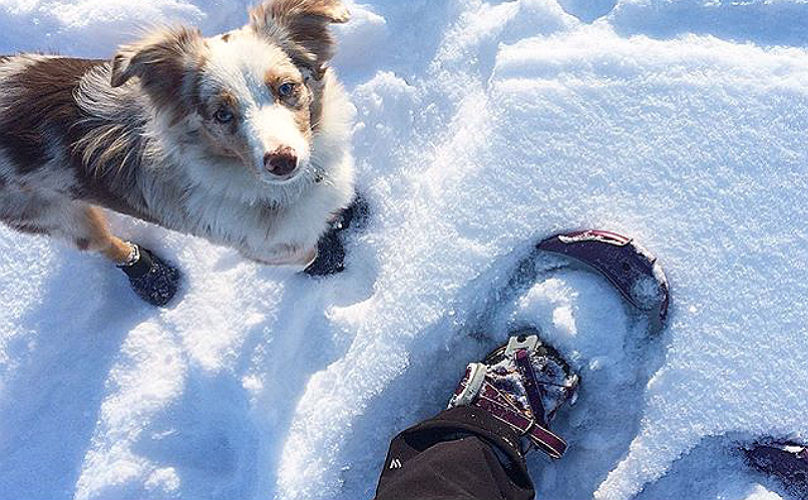The only kind of puppy that isn’t cute is one that is being a downright terror. As wonderful as they are, puppies have a seemingly endless ability to cause a ruckus! Here are eight of the issues you’ll have to keep your eye on, if you want to get through your puppy’s “driving you nuts” phase.
1. Curiosity and Mischief
At 5-7 weeks of age puppies become curious little monsters that like to explore. This curiosity lasts well into puppy-hood and even into dog-hood. Take, for example, your puppy, who has probably just scampered off and gotten into mischief as you read this article.
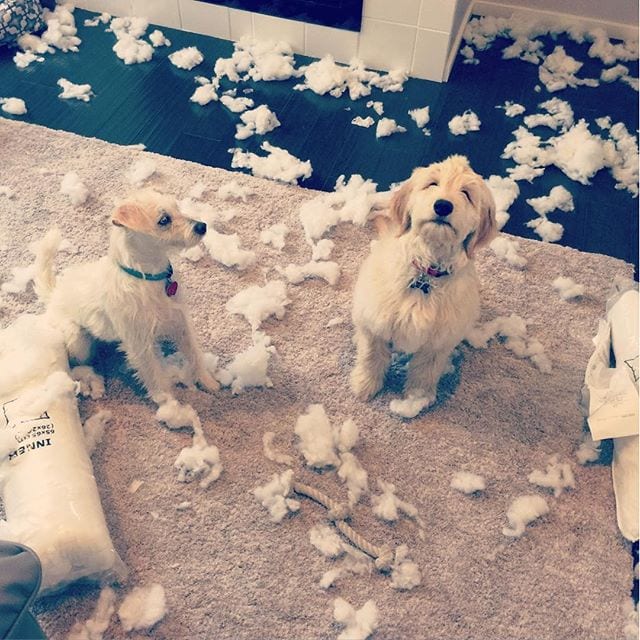

If he hasn’t, good job supervising! If he did, you’re excused to go clean up the mess. Supervising your puppy when he begins to have free range of the house is necessary if you want to catch unwanted behaviors, like counter-surfing, and stop them before they turn into bad habits. If your pup finds little treasures (i.e. Kleenex in the guest bathroom trashcan), he’ll quickly learn that looting the house is tasty and lots of fun.
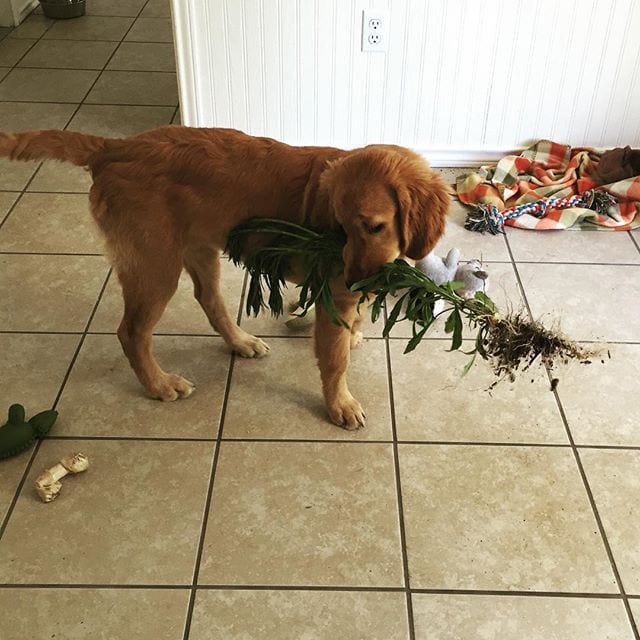

2. House Training
Puppies, just like humans, come into this world fully prepared to pee all over themselves and wait until mom can clean ’em up. It isn’t until 7-9 weeks of age that a puppy has enough physical skills and coordination to begin house training. House training can be frustrating for the hooman and down-right confusing for the pup. The key is consistency and patience. With some positive training your pup will be a potty princess in no time.
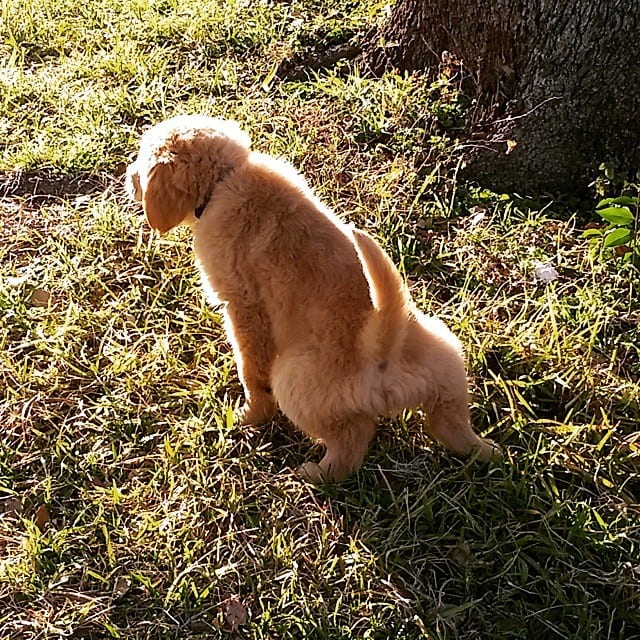

[bp_related_article]
3. Socialization
While most puppies love attention and a nice tummy rub, some forms of handling can be unfamiliar or weird. The prime-time to desensitize your pup towards strange or unfamiliar touch is between 8 to 16 weeks of age. If you haven’t done this, you can expect some occasions, like your puppy’s first vet-check, to go a little less than smooth. At this point, your pup probably isn’t used to having his toenails clipped, ears investigated, or teeth examined. Training early can help your puppy be more confident and comfortable when it comes to seemingly awkward handling situations. Also, your vet will thank you.
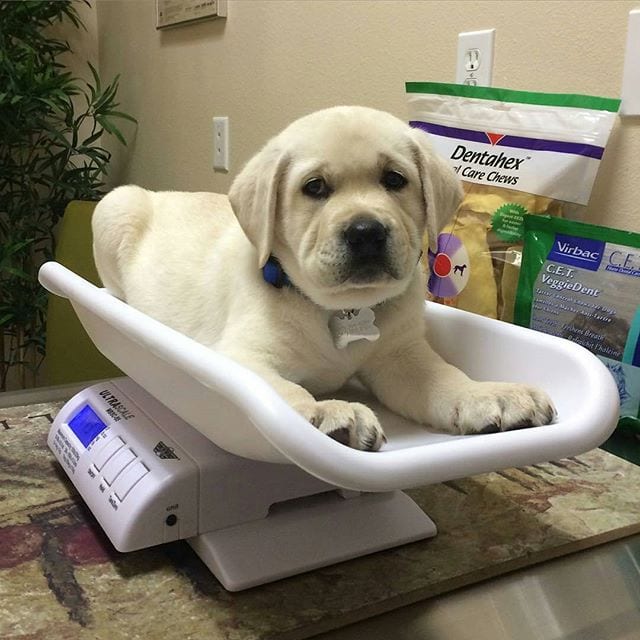

4. Play-Biting
Around 4-12 weeks of age, puppies learn how to play and begin to develop social skills. By playing with littermates, puppies learn to control the force of their bite, something commonly refereed to as “bite inhibition.” If one pup is biting too hard, another pup might yelp or stop playing. People must also act in this way if they want their puppy to learn how to appropriately play with people. If you keep playing with your puppy after she’s bitten you too hard, your pup might think that biting that hard is okay.
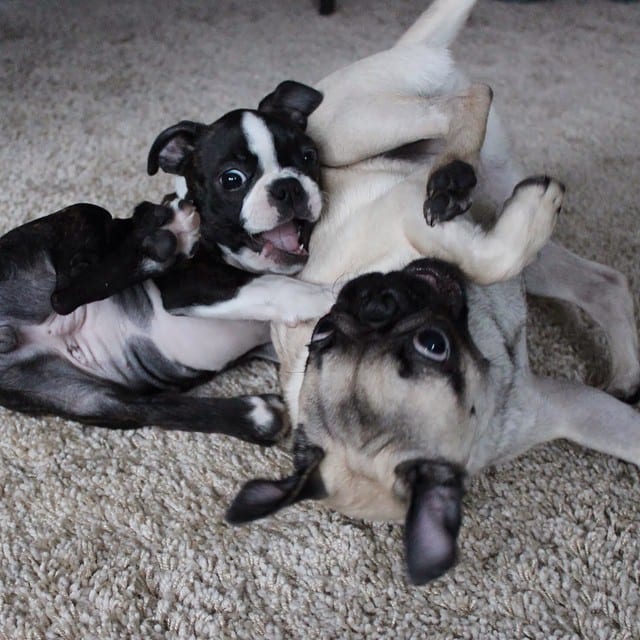

5. Chewing
When your puppy is between 3-6 months of age she will likely go through his first chewing phase (thank you, teething.) Pair that with a puppy’s curiosity and/or boredom and you’ve got yourself a destructive chewer. If bad chewing habits form in the first chewing phase, you can expect those same habits to appear in the second one around 7-9 months of age. Chewing is a completely normal behavior for dogs of all ages, and should not be discouraged, but rather encouraged on the appropriate objects, for instance a dog bone.
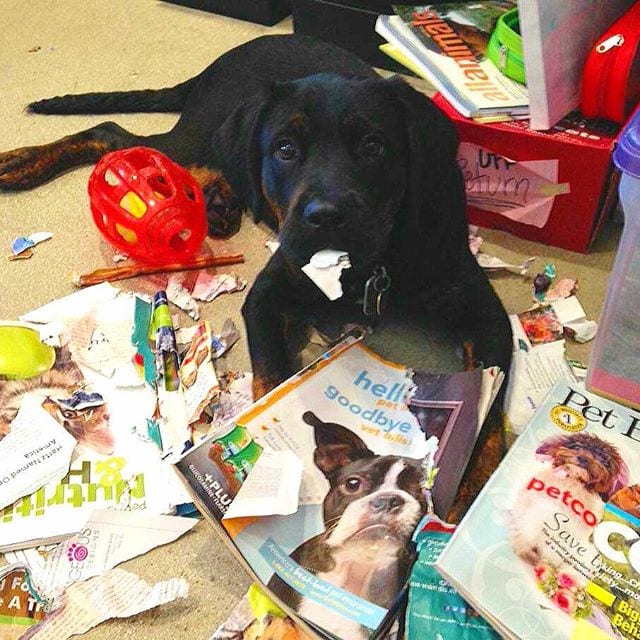

6. Jumping
Most puppies tend to play hard and act like little jumping beans when they are awake. The jumping may not be noticeable or annoying while they are little, but you’ll definitely notice it when your puppy becomes an adult and trips or knocks you down while you’re bringing in the groceries. Breaking a bad jumping habit when your puppy is young can save you a lot of pain and stress in the future.
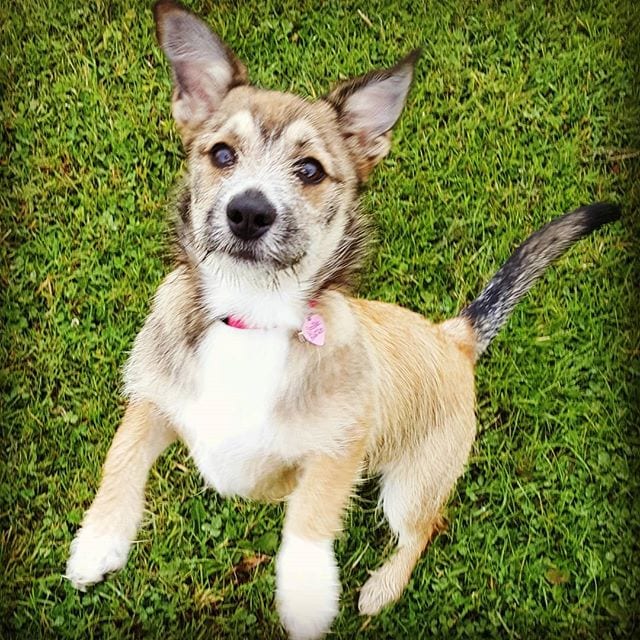

7. Barking
Energetic puppies also love attention and will likely experiment with their woofer as a way to get it! Often times people think a little puppy bark is cute… until it keeps them up at night. If your pup barks and gets attention, you can expect the behavior to continue past puppy-hood. Do yourself a favor and make sure puppy-love-fests are always a silent affair.
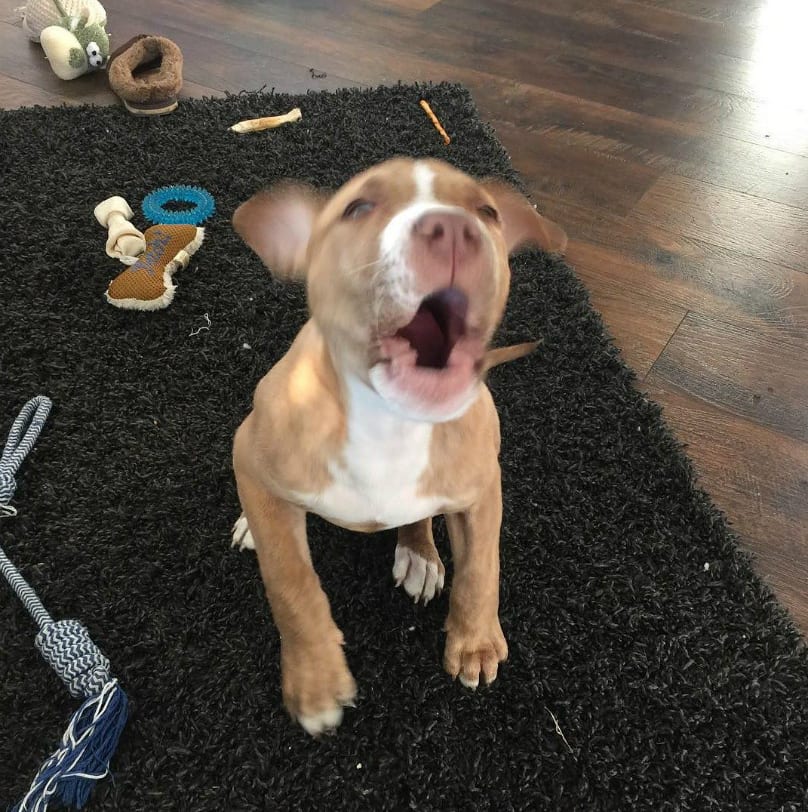

8. Mounting
Finally, around 6 to 18 months of age your little puppy has likely blossomed into a young and humpy adolescent, especially if he hasn’t been neutered. While mounting is not always a sexual behavior for dogs (it can also be a way to assert dominance), puppies that haven’t been neutered may mount other dogs or object more often during and after this time period.
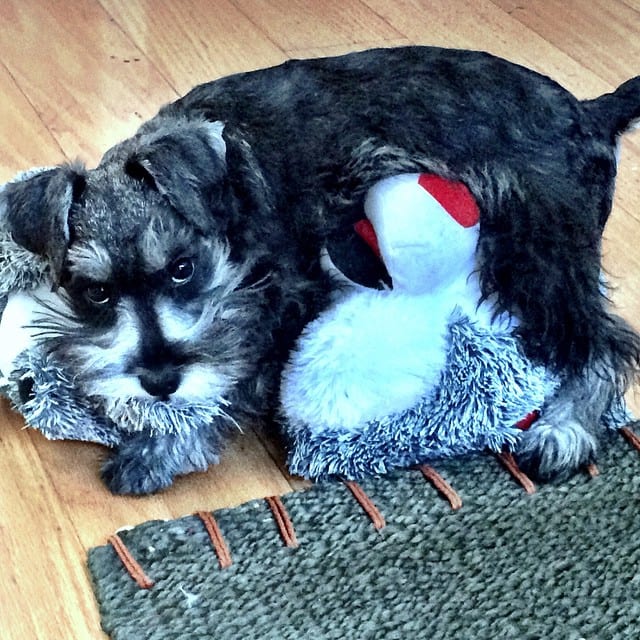

So as you can see, puppies go through a lot during the first couple months of their lives. If your pup gets plenty of supervision, guidance, exercise, and training, then your peers will see your puppy for who he truly is: the cutest creature on the planet.



